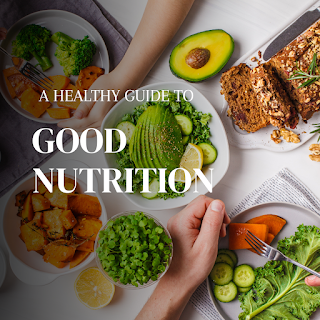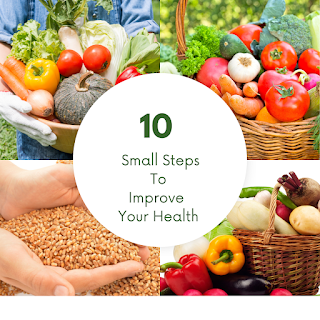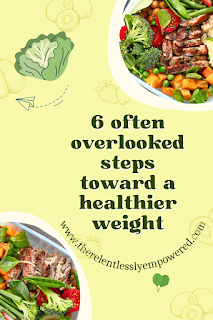I recognize that weight is just one measure of overall health, but it is
one that many of my clients are concerned with. If this describes you, then
this article is for you.
Overweight and obesity are so common today that two-thirds of adults and
one-third of children experience these in the United States right now. That’s
hundreds of millions of people, so please don’t feel alone. Overweight and
obesity can increase the risk of many health problems like type 2 diabetes,
heart disease, and some cancers. Achieving a healthy weight, eating nutritious
foods, and being physically active can help improve your health and reduce your
risks.
But as you know, there is so much more to the old adage: eat less, move
more.
Weight loss is very challenging for many reasons:
●
There is an abundance of
food available around most of us 24/7
●
Eating isn’t just something
we do for sustenance; it’s gratification, a social activity, and sometimes even
a reward
●
Computers and cars, etc.
have contributed to a much more sedentary lifestyle—we don’t all need to be
physically active farmers to survive anymore
●
Reducing calories
voluntarily is really, really hard; it’s a huge challenge to change habits
●
Many diets work in the
short term, but fail later on because they’re simply unsustainable
●
After losing weight,
maintaining weight loss is extremely difficult (and this is particularly true
for women after menopause or individuals recovering from a stroke or living
with chronic disease)
Today, let’s go over some strategies to overcome the challenges of weight
loss.
What is metabolism and how
can I lose weight?
Your weight
is based on several factors, some are controllable and others are not. For
example, your genetics, family history, and hormones can impact your weight,
but there’s not too much you can do to significantly change those. On the other
hand, how much and what you eat, the medications you’re taking, the amount of
stress you’re under, and how much sleep and physical activity you get also
contribute to weight, and are a bit more controllable (albeit not completely
controllable).
Here’s where metabolism fits with weight. There are so many things that
your body does at rest: breathing, pumping blood, adjusting hormone levels,
maintaining your body temperature, and growing and repairing cells. The amount
of energy (calories) your body uses to perform these essential functions is
called your “basal metabolic rate.” Overall, your basal metabolic rate (BMR),
or metabolism, accounts for about
two-thirds of the calories your body burns each and every day.
“Metabolism is the process by
which your body converts what you eat and drink into energy. During this
complex process, calories in food and beverages are combined with oxygen to
release the energy your body needs to function,” according to the Mayo Clinic.
Your metabolism is influenced mostly by your body size and composition.
This means that people who are bigger and/or have heavier bones and more muscle
mass burn more calories at rest. Because men tend to be bigger and have more
muscle, they naturally tend to have a higher metabolism than women. This also
goes for younger people. Because bone and muscle mass naturally tend to
decrease (and fat mass naturally tends to increase) with age, if you don’t take
steps to maintain bone and muscle mass, your metabolism likely will decrease
which results in increased weight.
Certain medical conditions can also affect your metabolism. For example,
the hormonal conditions of Cushing’s syndrome, polycystic ovarian syndrome
(PCOS), or hypothyroidism (underactive thyroid) can slow your metabolism down.
These conditions often come with a range of other symptoms beyond just weight
gain. If you suspect that you have an underlying medical condition, don’t
hesitate to speak with your doctor or healthcare professional about tests to
confirm these diagnoses.
A slow metabolism may be one factor that influences your weight, but it’s
not the only one. How your body processes what you eat or drink and how active
you are also play roles in your weight. The process of digesting food burns
calories. About 10 percent of the calories in carbohydrates and protein are
used to digest them. Plus, the amount of physical activity you do also accounts
for some of the calories you burn every day.
While some people may gain or lose weight easier than others, in general,
the balance of your “energy equation” counts for your weight. That is, the
amount of energy (calories) you take in minus the amount of energy (calories)
you burn can determine whether you gain or lose weight.
Weight loss/maintenance
strategies
Before
you start a weight-loss program, be sure to speak with your healthcare
provider. Many weight-loss products or programs can be harmful depending on
your current state of health and goals. Be particularly wary of products or
programs that promise quick, long-lasting, or effortless weight loss.
Your behaviors and habits have a huge influence on your weight and you are
empowered to adjust them as you see fit. It’s recommended that if you
experience overweight or obesity and want to lose weight, try cutting 500
calories per day from what you eat. And, if you can add in some of these other
strategies (including adding physical activity) you may be able to reach your
weight-loss goals even faster.
Here are my top six strategies for weight loss/maintenance:
1 - Set specific, realistic, forgiving goals
●
Instead of a goal to “lose
weight,” try smaller and more specific goals that you can attain.
●
Daily or weekly goals can
be, for example, to cook a vegetable-rich meal on the weekend, decrease food
cues (hiding cookies out of sight or disregarding food ads), or walk at least
30 minutes a day for at least 5 days a week.
●
Try to stick with a new
habit for at least a week or two to start making it routine. Then when one
habit becomes consistent, add another one.
●
Remember, it’s not uncommon
to take 6 months to lose 5% of your body weight, so that may be a more
realistic goal to aim for.
2 - Ditch the “diet” mentality and focus on making lasting improvements for
sustainable health
●
Focus on improving your
food choices for overall health, rather than “dieting” for weight loss.
●
Enjoy lots of fruits,
vegetables, and lean proteins.
●
Replace saturated and trans
fats with healthier choices such as olive oil, nut butters, avocadoes.
3 - Try eating a different way and see what works for you
●
Ideally, each meal should
take at least 20 minutes to eat, so eat slower. Enjoy your food more and listen
for fullness cues that subtly signal when you’re getting satisfied and it’s
time to stop eating.
●
Eat more mindfully by
focusing on and enjoying what you’re eating while you’re eating it. Pay
attention to your food’s smell, taste, and texture as you’re eating it.
●
Try putting your fork down
or sipping water between bites and thoroughly chewing before swallowing.
●
If you have a habit of
snacking in front of the TV or computer screen, try getting used to replacing
that with a glass of water or unsweetened beverage instead.
4 - You don’t have to do exercise to be more physically active (but you
can)
●
Boost your activity; move
for at least 30 minutes per day (even three 10 minute sessions can help); more
movement can bring greater benefits.
●
Aerobic activity (e.g.,
walking, bicycling, etc.) is the most efficient way to burn calories.
●
Weight training (e.g.,
using weights or pushing your body against gravity) builds your muscles which
increases your metabolic rate; ideally you’d include at least two weight
training sessions per week.
●
Don’t forget you don’t have
to do “exercise” to be physically active, you can take the stairs more often,
park further away, walk a bit faster, or do housework or gardening—they all
count toward your physical activity.
●
Fidgeting counts, too. Your
non-exercise activity thermogenesis (NEAT), like shaking a leg, tapping a foot,
or even twirling a pen, also burns some calories.
●
Remember that any physical
activity is better for your health (and weight loss goals) than none.
5 - Reward your successes
●
According to the National
Institutes of Health, “frequent small rewards, earned for meeting smaller
goals, are more effective than bigger rewards that require a long, difficult
effort.”
●
Each time you reach a goal,
however small, reward your success with a non-food activity or item.
●
For example, you may want
to buy yourself that book, movie, music, or game that you’ve wanted for a
while. Or re-read, re-watch, or re-listen to an old favorite.
●
Perhaps you can put a small
amount of money away to save up for a larger reward.
●
Rewards don’t have to be
monetary. You can take some time for yourself like have a bath, do your nails,
or enjoy a craft or hobby you love (or try a new one).
●
Maybe you’d prefer some
time to watch comedy skits or funny animal videos online.
6 - Persevere
●
Losing weight is very hard
and most people have to keep trying before they find a way that works for them.
●
Every day is a new day. If
you go off track, get back on track and try again.
●
Don’t give up. A study
published in September 2020 found that trying to lose weight over and over
again (also known as “weight cycling”) can significantly reduce your risk of
dying. According to the National Institutes of Health, “repeatedly losing and
regaining weight was better than giving up after one or two attempts or, worse
still, never trying to lose weight at all.”
I have found that 2B
Mindset is one of the simplest and effective ways of not only losing weight
but also improving your relationship with food.
I also recommend 4
Week Gut Protocol, a program designed to help you discover and eliminate
foods from your diet that causes you gastrointestinal discomfort or otherwise minimizes
your healthy weight management efforts. It also helps you to add foods to your diet that supports your overall gut health.
Portion
fix is another program that I highly recommend that focuses on portion
control, the lack of which is a leading deterrent to weight control. This
program uses portion control containers to determine how much of each
macronutrient you should be eating each day according to your caloric needs.
Bottom line
While weight is but one measure of health, it is a big concern for many
people. Losing weight is not easy. Your metabolism is influenced by many
different factors—some you can’t control (e.g., your genes) and others you can
(e.g., what and how you eat).
The fundamentals of weight loss include enjoying healthier, nutritious
foods more often and being more physically active, but there are so many
approaches that help you make this happen for you. The way you approach dieting
and eating, the way you set your goals and reward yourself, and the way you
persevere are all totally customizable so you can try and see what works for
you.
For a nutritious approach to metabolism and your weight, consult a nutrition
coach who can work with your concerns and dietary restrictions.
Is your metabolism causing issues?
Need help to lose weight or
maintain weight loss?
Looking for ways to lose weight
beyond “eat less, move more”?
I can help. Complete
the Empowerment Zone Questionnaire to see if my comprehensive health and
wellness program can help you.
References
Harvard Health. (2018, May). Burning calories without exercise. https://www.health.harvard.edu/staying-healthy/burning-calories-without-exercise
Harvard Health. (2018, July). Small tricks to help you shed pounds and keep
them off. Retrieved from https://www.health.harvard.edu/staying-healthy/small-tricks-to-help-you-shed-pounds-and-keep-them-off
Harvard Health. (2019, March 19). The lowdown on thyroid slowdown.
Retrieved from https://www.health.harvard.edu/diseases-and-conditions/the-lowdown-on-thyroid-slowdown
Harvard Health. (2019, November 20). Building simple habits for healthy
weight loss. Retrieved from https://www.health.harvard.edu/staying-healthy/building-simple-habits-for-healthy-weight-loss
Mayo Clinic Healthy Lifestyle. (2019, February 21). Is a slow metabolism
the reason I'm overweight? Retrieved from https://www.mayoclinic.org/healthy-lifestyle/weight-loss/expert-answers/slow-metabolism/faq-20058480
Mayo Clinic Healthy Lifestyle. (2019, February 21). Can I boost my
metabolism to lose weight? Retrieved from https://www.mayoclinic.org/healthy-lifestyle/weight-loss/expert-answers/metabolism/faq-20058346
Mayo Clinic Healthy Lifestyle. (2020, November 10). Metabolism and weight
loss: How you burn calories. Retrieved from https://www.mayoclinic.org/healthy-lifestyle/weight-loss/in-depth/metabolism/art-20046508
NIH Intramural Research Program. (2020, Dec 8). Attempting Weight Loss
Linked to Reduced Risk of Death. Retrieved from https://irp.nih.gov/blog/post/2020/12/attempting-weight-loss-linked-to-reduced-risk-of-death
NIH National Center for Complementary and Integrative Healthy. (2017,
September). Weight Control. Retrieved from https://www.nccih.nih.gov/health/weight-control
NIH National Heart, Lung, and Blood Institute. (n.d.). Aim for a healthy
weight. Retrieved from https://www.nhlbi.nih.gov/health/educational/lose_wt/index.htm
NIH National Heart, Lung, and Blood Institute. (n.d.). Guide to Behavior
Change. Retrieved from https://www.nhlbi.nih.gov/health/educational/lose_wt/behavior.htm

.png)
.png)
.png)
.png)
.png)




.png)
.png)
.png)